The Myth of Authority
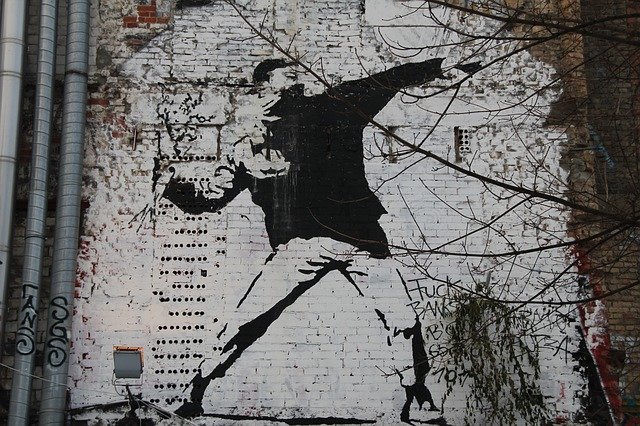
When most everyday people hear the word "anarchy", they think of Molotov-cocktail-throwing rioters burning things in the streets. What the word actually means is "without archons" or "no rulers." It has a varied history, to be sure. Some see it as a fight against capitalism, others as the removal of all forms of hierarchy, still others (more recently) think of it in terms of the removal of coercion in favor of voluntary exchange.
That's the interesting thing about language. It changes over time and represents different symbols to different people. For me, anarchy and voluntaryism correlate nicely with what I've come to think may be the closest thing to universal morality yet: the Non-Aggression Principle or NAP. There are criticisms, to be sure, and it probably won't solve the trolly problem any time soon (short of tying up the bastard who keeps tying people up to train tracks).
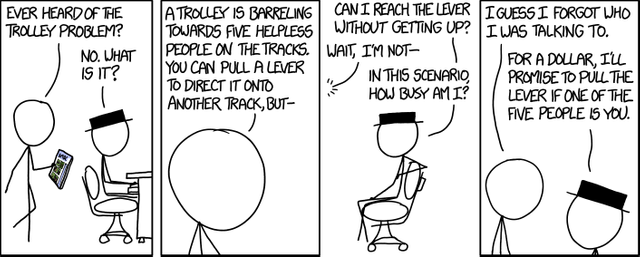
via xkcd
(don't be like this guy)
But the NAP does give us a framework for peaceful interaction by invaliding the initiation of force and honoring our rights to own ourselves in the moment (liberty), ourselves in the past (property), and ourselves in the future (life).
The biggest violation of the NAP (and anarchy in general) comes about when humans believe in and follow authority. I'm not talking about an earned, voluntary authority like "Michael Jordan is an authority on the game of basketball," but more of a positional, hierarchical authority involving coercive power over others, initiated with no moral justification. When we think about this form of authority, the obvious example of government comes to mind. Some see government as the monopoly on the use of force within a geographic region. I take it a bit further and say it also has a monopoly on currency creation, defense, law, and justice. As with most unnatural monopolies, I think it distorts voluntary exchange which leads to poor service through the lack of competition.
Many agree with Thomas Hobbes and argue for a Leviathan to keep our "evil" human nature in check. I personally think we can and should move beyond the ideas written over 350 years ago and recognize how many of us are loving, compassionate, and empathetic. As a species, we no longer put cats in bags and burn them for entertainment. Today we have technologies like the blockchain which enable a peaceful, decentralized approach to human society. We no longer have to follow the standard programming from birth to death which reinforces primitive needs to find the alpha and follow them for safety and survival. People are starting to wake up to the failures of the Prussian model of education which teach children to stay in line and follow orders (we're no longer a nation of factory workers after all). The Internet has removed the gatekeepers of knowledge, freeing us from the myth that we require rulers in order to thrive.
If you're curious about this line of thinking, I want to highlight two books for your consideration. The first is The Most Dangerous Superstition by Larken Rose.
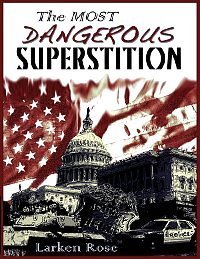
Which you can find on Amazon here.
The second is Freedom by Adam Kokesh.
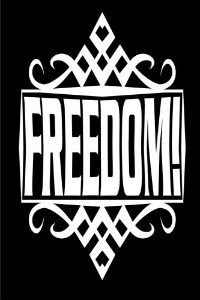
Available on Amazon here and as an audio book on YouTube.
Adam's book may be a little easier to digest, but maybe I feel that way because I read Larken's book first.
Freedom, liberty, and escaping from oppression are very important aspects of our quest for well-being. All around us we see government becoming more of a joke than a solution while the private sector innovates with new creations like Steemit. As many have talked about already, Steemit has the potential to revolutionize how society functions because it can create support for a currency not backed by force, but by code.
As a species, it's time for us to start growing up. Positional, unearned authority is not only corrosive to freedom, but it's dangerous and destructive. Unfortunately, our primitive, follow-the-leader pack mentality isn't easy to overcome. I see it here on Steemit as well when people pander to whales or cry out for the "admins" to "do something" about whatever problem they see. With cryptocurrencies and Steemit, there is no centralized authority. Not even steemit.com is centralized now that the code is open source. The witnesses and miners work together via non-coercive consensus in their own self-interests which represent the interests of the majority on the network.
This is a truly beautiful and unique time in history where decentralization on a mass scale is actually more efficient than centralization. We no longer have to follow our primitive instincts backed by fear or doubt.
We Are No Longer In a Cage
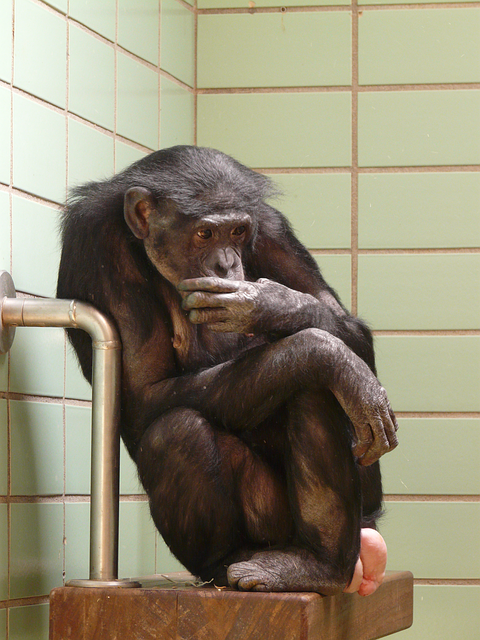
It's time to escape the cage of our own thinking. We're the adults now, and it's time to act like it. Mommy and daddy are no longer the authority on what is right and what is wrong. That's up to us to figure out. There is no one who will "fix" society but us. The belief in authority is a myth, a mass delusion. No human has a right to rule over another human, and no one can delegate to others rights they don't have themselves.
The future is what we make of it.
If you're more of an audio-visual learner like me, please check out this video on the philosophy of liberty (8 minutes):
Thanks for reading. I'd love to hear your thoughts in the comments below.
Great post! I think it's worth pointing out that the Hobbesian "nasty, brutish and short" conception of humanity is not simply anachronistic -- it's blatantly wrong , and increasingly contradicted as we learn more about human evolution. You can see glimpses of this even in the writings of Kropotkin and more modern conceptions of our cooperative evolution. I've recommended it before, but I highly recommend reading Matt Ridley's "The Origins of Virtue" -- a good popsci summary of this stuff that encompasses the best of Dawkins' selfish gene stuff (and more).
What's up @cwage! Great to see you here. I actually purchased Origins of Virtue the first time you recommended it to me, that's why it wasn't in my reading list I showed you the other day! It's sitting in my Audible account now, so I'll definitely get to it.
Cheers @cwage, good to see you here!
I stumble on the video "The philosophy of Liberty" on my computer a month or so ago and I found it very nice. I was wondering where I first got it from. Now I have my response. I download 90% of the video I watch on Youtube.
Nice. :) It's one of my favorites for easily explaining basic concepts of ethics, morality, and liberty.
I'm new to the idea of anarchy, so bear with me as I work through some of the doubts and questions.
I REALLY want to believe that people are inherently good and want to do the right thing. However, my idea of the "right thing" and someone else's can be completely different. I believe vaccinations should be mandatory, but others believe believe they're not necessary. I don't think abortion is acceptable, but others do. I don't know if I reconcile my beliefs to being tolerant of everyone else's beliefs. Which is why I have a hard time believing everyone is willing to work together for a common good- my own selfish nature wants everything to be done MY way or at least have a way to petition for my way to be the universal "right" way. When people do things that are punishable(murder, rape, steal)- I want them to be punished. Who decides what's a punishable offense and what punishment the offense deserves? Who carries out the punishment?
Not everyone is inherently good. A certain percentage of the population is psychopathic and we should take steps to protect ourselves and our loved ones from them.
I wanted to include more in my post, but it already has a lot of content. One of my favorite videos on some of the topics you described is right here:
The short answer is, we can't "force" anyone to do anything. This is not how adults behave in 95%+ (sorry, that's a made up number) of our human interactions. No one tells you what to eat, what to wear, where to live, what car to buy, what house to rent or buy, who to marry, who to associate with, etc. The "no rulers" concept of anarchy and voluntaryism is how we already interact.
When it comes to the NAP, it's about crimes with actual victims. Vaccinations is an interesting one (as is second-hand smoke) because there are victims and some may be aggressing against others, even if they don't realize it. Abortion is also challenging because people have wildly different views on the sanctity of life and if a few cells should have equal right to well-being as a fully-grown adult while others argue some arbitrary moment of birth somehow gives new rights to a fully-functioning living being who was previously just as alive, but inhabiting the space of another individual. Drawing hard lines is very difficult in worlds of grey which is all the more reason (IMO), we should tread carefully and humbly. Good ideas don't require force. If we can't persuade others peacefully, we can disassociate with them or make a stronger case for why they are aggressing against others, creating victims who justifiably need protection.
The ideas of voluntary interaction do reveal much of the selfish, primitive, authoritarian thinking I mentioned in my post. We all have it, but I also believe we can move beyond it. Universal "rights" are very hard to argue for, but I think the NAP comes close, so that's a good place to start when thinking about this stuff.
Thanks for commenting!
Much of what you wrote rings true for me. But could it be that the ultimate problem is not government itself but evil, power-hungry people lording their authority over others and using their positions for selfish gain? In other words, is the crisis of authority actually a crisis of character in our leaders?
What if we could create a culture where we saw government "leadership" not as positions of authority but as positions of responsibility? What if we could have a government with leaders who followed Jesus' teaching to his disciples:
“You know that the rulers in this world lord it over their people, and officials flaunt their authority over those under them. But among you it will be different. Whoever wants to be a leader among you must be your servant, and whoever wants to be first among you must become your slave." (Matthew 20:25-27)?
Hey Jason. Thanks for your input.
I'm all about servant leadership. I've seen many of the leaders in the community here doing exactly that since I first joined. So many people patiently answering the same questions again and again to help people understand while others are building new open source tools to improve the experience for everyone.
My problem with viewing government in that manner is that, if you do, it ceases to be government. A leader is someone I voluntarily choose to follow. A government official or enforcer with a monopoly on the "legitimate" (as in legal, not exactly moral) use of force is someone I have to obey, or I risk being killed or imprisoned. If government was voluntary, then there would be no governing going on, and it would be more like the relationships I have with my neighbors where we work things out as adults.
There will always be power hungry people. The real problem appears (IMO) when we believe the myth, the most dangerous superstition as Larken Rose calls it, and give them powers through our perceptions they don't justifiably have. What separates a government from a mafia is, in many ways, our belief in their right to act as they do.
Here's a fun little video from Larken Rose for those who are interested (less than 7 minutes):
Hi! This post has a Flesch-Kincaid grade level of 9.2 and reading ease of 60%. This puts the writing level on par with Michael Crichton and Mitt Romney.
I kinda like this bot..
the mindfuck though. Wow, i'm like a famous writer...and mitt romney?! what does this mean. !!!
Yeah, that was a little weird, but I like the concept anyway :P
@lukestokes, what an excellent article. I loved every bit of it. Too bad that many great articles like this don't receive more love from the community.
Thank you! I'm pretty stoked about making almost $50 with it. :) That's a lot more than Facebook or Twitter ever paid me. Sure, I'd love for all of my posts to trend, but I'm grateful for being recognized at all. Thanks so much for the compliment!
Great post. I think anarchism is the most peaceful non-aggressive form of philosophy I have encountered. Because once it isn't, it is no longer anarchy.
Sounds good to me. :)
Great article. Well articulated. Thank you for posting.
Thank you! It's funny around here because this is one of the posts I'm most proud of, and yet it didn't hit many rewards compared to some others I've done which took much less time to put together. I'm proud of it though. I'm glad others enjoy it also. :)
I've seen similar trends with things I wrote my pre-Steem blog... or just with social media posts for my cookbook. The ones that took a great deal of effort and thinking are dwarfed by some of the readership on things I'd never expect would be popular... or that just took a moment to write. Funny world sometimes, isn't it? ;)
Great piece btw! Let's get out of this cage!
Thanks Randy! I agree, it's like the ever-shifting zeitgeist is way more powerful than my own concepts of value and importance.
bravo, luke. While the authority is definitely not a myth for me. I am more interested in earned authority and expertise.
I love that you actually read some book and thought about it before posting unlike a lot of what i see here.
thank a lot. followed and all that :)
I appreciate the follow, thank you!
May check out Adam's books, I enjoy easier reads like how you write your post. I really like how you structure and write things very easy to keep in tune as a reader, great share again @lukestokes!
Thanks @arcaneinfo! I listened to Adam's book via YouTube and really enjoyed it. He's got a very conversational style as well.